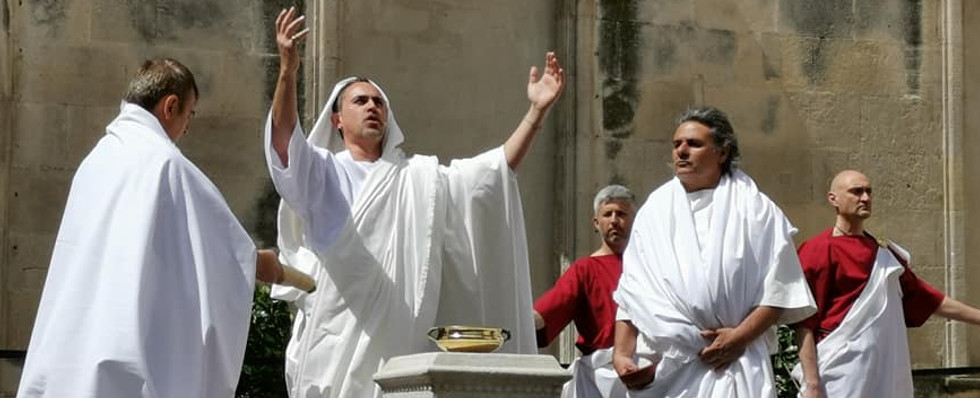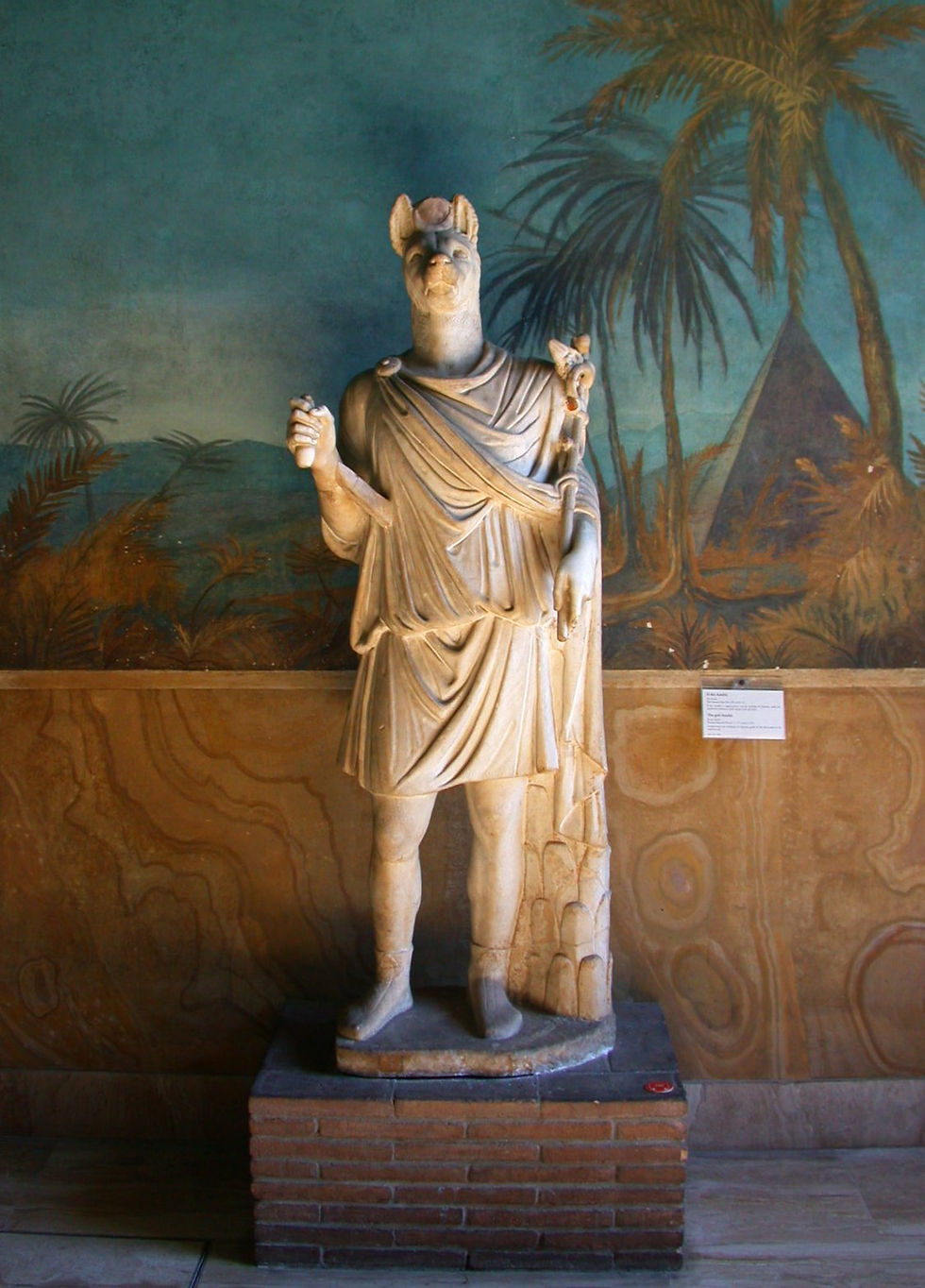The magic of Fantasia
- associationenarro
- Aug 8, 2025
- 4 min read
We all remember Walt Disney's famous work, Fantasia, in which Mickey plays the role of the sorcerer's apprentice struggling with water-carrying brooms... What we know less is that this scene is based on a symphonic poem by Paul Dukas (1865-1935), which was itself inspired by a ballad by Goethe (Der Zauberlehrling).

But what is the connection to antiquity ??
We find in the writings of Lucian of Samosata (125-192) the same passage as in Goethe's work. With several centuries of difference, our vision of magic, which has been part of our childhood, is identical to that of antiquity !
And what if, in the end, this timelessness was not so surprising?... Magic has no specific era, and Lucian of Samosata's story is a beautiful example of this through its modernity. It is immutable and does not change with time. What makes it mysterious is that its roots run so deep in history that it is a reflection of beliefs or legends whose meaning has most often been lost...
In Lucian of Samosata's text, the sorcerer's apprentice Eucrates has replaced Mickey. He meets a mage named Pancrates and has to deal with unruly water-carrying brooms...
"I was still young and I was staying in Egypt, where my father had sent me to complete my studies. One day, I felt the desire to go up the Nile to Coptos, and from there to see the statue of Memnon and hear that marvelous sound it makes at sunrise. I heard it then, not as ordinary mortals do, emit an inarticulate sound; but Memnon himself opened his mouth and gave me an oracle in seven verses, which I could quote to you if it were not out of place.
Going up the river, it happened that among the passengers was a citizen of Memphis, one of those sacred scribes, an admirable man in his knowledge and versed in all the doctrines of the Egyptians. It was even said that he had spent twenty-three years in the underground sanctuaries where Isis taught him magic.
'_ It's Pancrates you're talking about,' said Arignotus; 'he is my master, a sacred man, clean-shaven, dressed in linen, pensive, speaking Greek (but poorly), tall, with a flat nose, prominent lips, and thin legs...'
'_ It's him,' Eucrates replied, 'it's indeed Pancrates...'
At first, I didn't know what kind of man he was; but seeing him, every time the boat anchored, work miracle after miracle, especially riding crocodiles and swimming with monsters, who bowed before him and flattered him with their tails, I recognized that he was a sacred man; and little by little, by dint of courtesy, I became his comrade and penetrated so deeply into his intimacy that he communicated all his secrets to me. In the end, he urged me to leave all my servants in Memphis and to follow him alone, telling me that we would not lack people to serve us.
From then on, this is how we lived. When we arrived at a lodging, my man would take the door bolt, or the broom, or the pestle, cover it with clothes, and, pronouncing a magic formula on it, he would make it walk, and everyone would mistake it for a man; and the object would go fetch water, get our provisions, prepare them, serve us in everything with skill, and run our errands. Then, when the mage no longer needed its services, he would turn the broom back into a broom, or the pestle into a pestle, by pronouncing another incantation formula on it. As much as I desired to learn this secret, I could not get it from him: he was jealous of it, even though in all other things he put himself entirely at my disposal. But one day, having secretly placed myself in a rather dark corner, I heard the enchantment without him noticing. It was a word of three syllables. He then went to the town square, after having commanded the pestle what it had to do.
The next day, this mage having gone to the square to attend to some business, I took the pestle, dressed it as the Egyptian did, pronounced the three syllables, and ordered it to bring water. When it had filled the amphora and brought it to me: 'That's enough,' I said to it, 'bring no more water and become a pestle again.' But unwilling to obey me, it kept bringing more and more, so much so that by dint of fetching water it had flooded our house. I was greatly embarrassed, for I was very afraid that Pancrates, in turn, would be angry with me, which indeed happened. I then took an axe and cut the pestle in two; but each of the two pieces, taking amphorae, went to fetch water, and instead of one carrier, I had two. At that moment, Pancrates appeared; he understood what had happened and turned these water carriers back into pieces of wood as they were before the enchantment; but he left me without me noticing, and disappeared I know not where...'"




Comments